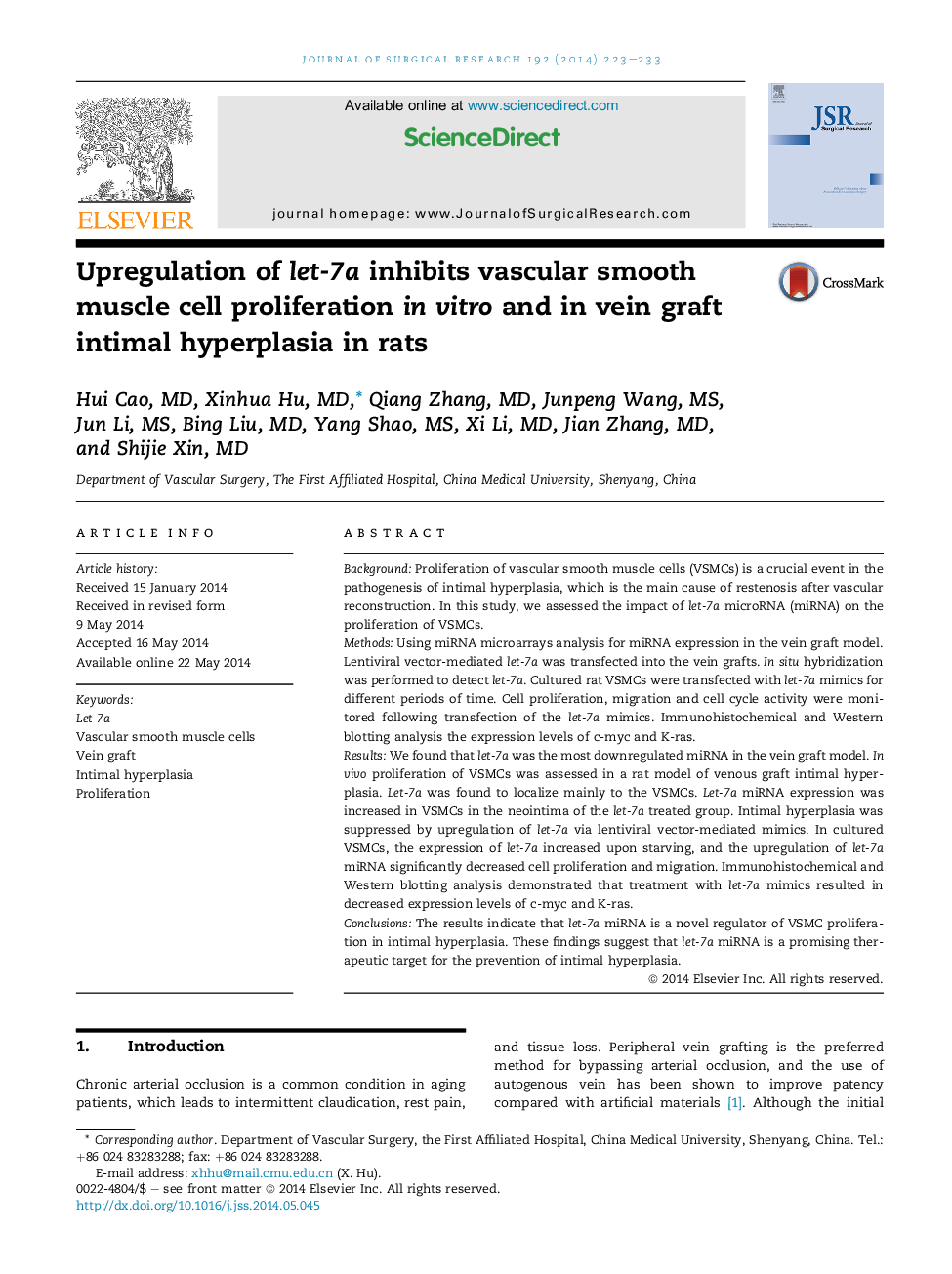| Article ID | Journal | Published Year | Pages | File Type |
|---|---|---|---|---|
| 4300086 | Journal of Surgical Research | 2014 | 11 Pages |
BackgroundProliferation of vascular smooth muscle cells (VSMCs) is a crucial event in the pathogenesis of intimal hyperplasia, which is the main cause of restenosis after vascular reconstruction. In this study, we assessed the impact of let-7a microRNA (miRNA) on the proliferation of VSMCs.MethodsUsing miRNA microarrays analysis for miRNA expression in the vein graft model. Lentiviral vector-mediated let-7a was transfected into the vein grafts. In situ hybridization was performed to detect let-7a. Cultured rat VSMCs were transfected with let-7a mimics for different periods of time. Cell proliferation, migration and cell cycle activity were monitored following transfection of the let-7a mimics. Immunohistochemical and Western blotting analysis the expression levels of c-myc and K-ras.ResultsWe found that let-7a was the most downregulated miRNA in the vein graft model. In vivo proliferation of VSMCs was assessed in a rat model of venous graft intimal hyperplasia. Let-7a was found to localize mainly to the VSMCs. Let-7a miRNA expression was increased in VSMCs in the neointima of the let-7a treated group. Intimal hyperplasia was suppressed by upregulation of let-7a via lentiviral vector-mediated mimics. In cultured VSMCs, the expression of let-7a increased upon starving, and the upregulation of let-7a miRNA significantly decreased cell proliferation and migration. Immunohistochemical and Western blotting analysis demonstrated that treatment with let-7a mimics resulted in decreased expression levels of c-myc and K-ras.ConclusionsThe results indicate that let-7a miRNA is a novel regulator of VSMC proliferation in intimal hyperplasia. These findings suggest that let-7a miRNA is a promising therapeutic target for the prevention of intimal hyperplasia.
